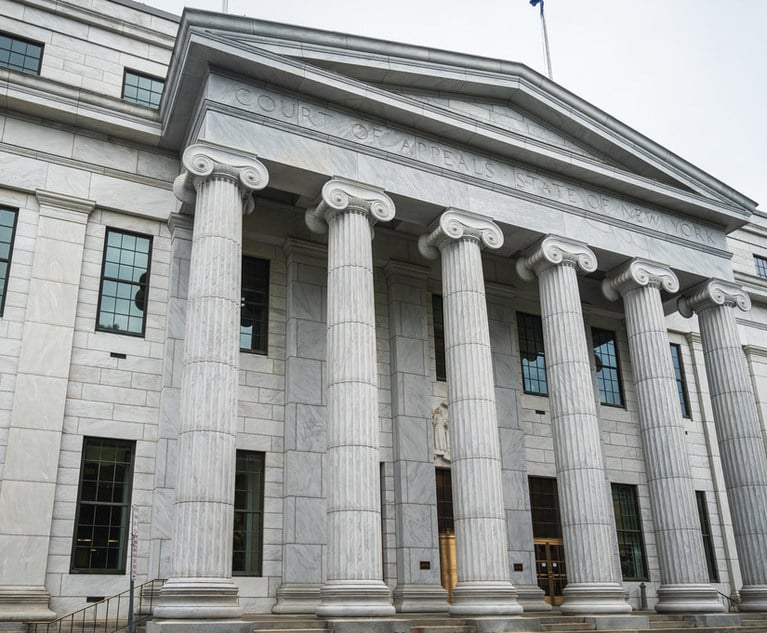 In December 2022 in United States v. Blaszczak, 56 F.4th 230 (2d Cir. 2022) (Blaszczak II) a Second Circuit panel issued a ruling vacating the court’s controversial three-year-old decision in United States v. Blaszczak, 947 F.3d 19 (2d Cir. 2019) (Blaszczak I). In Blaszczak I the Second Circuit held that a government agency’s confidential information can constitute “property” for purposes of federal criminal fraud statutes and that the “personal benefit” test announced by the Supreme Court for insider trading cases under Section 10(b) of the Securities Exchange Act does not apply to insider trading cases charged under the securities fraud provision in Title 18 (18 U.S.C. §1348). Illustrating the ever-shifting sands at the foundation of insider trading law, while defendants’ certiorari petitions were pending in Blaszczak I, the Supreme Court issued Kelly v. United States, 140 S. Ct. 1565 (2020), and as predicted, the Supreme Court vacated the decision in Blaszczak I and remanded the case to a different panel of Second Circuit Judges—Judge John Walker replaced Judge Christopher Droney who retired days after issuance of the original opinion—for further consideration. See Robert J. Anello and Richard F. Albert, Days Seem Numbered for Circuit’s Controversial Insider Trading Decision, NYLJ (Dec. 10, 2020).
In December 2022 in United States v. Blaszczak, 56 F.4th 230 (2d Cir. 2022) (Blaszczak II) a Second Circuit panel issued a ruling vacating the court’s controversial three-year-old decision in United States v. Blaszczak, 947 F.3d 19 (2d Cir. 2019) (Blaszczak I). In Blaszczak I the Second Circuit held that a government agency’s confidential information can constitute “property” for purposes of federal criminal fraud statutes and that the “personal benefit” test announced by the Supreme Court for insider trading cases under Section 10(b) of the Securities Exchange Act does not apply to insider trading cases charged under the securities fraud provision in Title 18 (18 U.S.C. §1348). Illustrating the ever-shifting sands at the foundation of insider trading law, while defendants’ certiorari petitions were pending in Blaszczak I, the Supreme Court issued Kelly v. United States, 140 S. Ct. 1565 (2020), and as predicted, the Supreme Court vacated the decision in Blaszczak I and remanded the case to a different panel of Second Circuit Judges—Judge John Walker replaced Judge Christopher Droney who retired days after issuance of the original opinion—for further consideration. See Robert J. Anello and Richard F. Albert, Days Seem Numbered for Circuit’s Controversial Insider Trading Decision, NYLJ (Dec. 10, 2020).
On remand, in a familiar turn of events, Judge Amalya Kearse, writing for the majority, vacated defendants’ convictions on the very ground of her dissent in Blaszczak I, leaving intact Blaszczak I’s conclusion that Section 1348 does not require proof of personal benefit. A forceful concurrence by Judge Walker, joined by Judge Kearse, calls into question this second holding and cautions of the dire consequences for legitimate market activity. In recognition of the persistent doctrinal flux, Judge Walker calls on Congress and the courts to require the government to demonstrate proof of a personal benefit to secure a Section 1348 conviction. Given the procedural posture of the Blaszczak case and the lack of judicial precedent in other circuits, Judge Walker’s insights add more mud to the already muddy waters of insider trading law in the Second Circuit and elsewhere.
The Friends With Benefits Requirement of Insider Trading Liability
This content has been archived. It is available through our partners, LexisNexis® and Bloomberg Law.
To view this content, please continue to their sites.
Not a Lexis Subscriber?
Subscribe Now
Not a Bloomberg Law Subscriber?
Subscribe Now
LexisNexis® and Bloomberg Law are third party online distributors of the broad collection of current and archived versions of ALM's legal news publications. LexisNexis® and Bloomberg Law customers are able to access and use ALM's content, including content from the National Law Journal, The American Lawyer, Legaltech News, The New York Law Journal, and Corporate Counsel, as well as other sources of legal information.
For questions call 1-877-256-2472 or contact us at [email protected]






